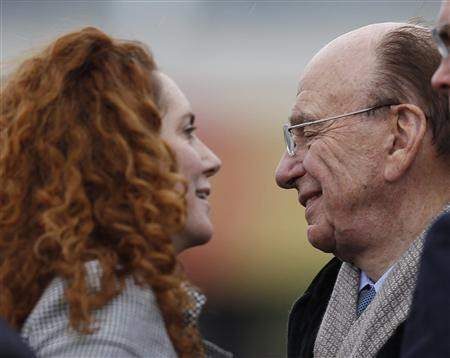News of the World phone hacking scandal: Journalism on trial?

The events of the last week may have shaken any faith that people may have had in journalistic standards in Britain.
Last week saw the mini-eruption of "Harigate" whilst this week the phone hacking scandal, which has been rumbling away for some time, exploded when it was alleged that News of the World journalists had hacked into the phones of murder victims and their families.
The "Harigate" incident, in which Independent journalist Johann Hari was found to have been rather inventive in his use of quotes in interviews revealed the willingness of journalists to bend the truth for the sake of good copy.
One of the justifications used by Mr Hari was that many of his interviewees were not English and so did not necessarily express their views in the clearest or most eloquent way during the interviews. Copying and pasting their written works was the obvious answer to this problem apparently.
Such a solution does seem somewhat extreme when a more obvious solution might be to be generous and add on the interviewee's behalf all the articles of the English language so often omitted when foreigners speak the language. Strictly speaking that would also be a departure from the literal truth of what was spoken, but it's much better than pretending some soaring rhetoric taken from a book was spoken directly to the interviewer.
Since the mini-scandal broke there has been speculation that Mr Hari may be asked to hand back the Orwell Prize that he won in 2008. In a statement the Orwell Prize said it is conducting further investigations into the allegations, although it did add that no allegations had been made against the specific pieces that won Mr Hari the prize.
Mr Hari's failings though are minor when compared with what is alleged to have been going on at the News of the World in the not too distant past. He may have bent the truth but he did not break the law.
This story has been ongoing for a while now and has been mildly embarrassing for the Prime Minister, David Cameron, who for a time employed as his communications chief Andy Coulson, the editor of the News of the World when the first reported phone hackings took place.
Mr Coulson resigned as editor despite claiming to have no knowledge of the hacking, the fact that the story refused to go away also led to him resigning from his post at Number 10 earlier this year.
At that time however all the allegations centered around hacks into the phones of the rich and powerful. Now however the story has taken a nasty turn as News of the World journalists stand accused of hacking into the phones of the weak and vulnerable.
Murder victim Milly Dowler allegedly had her phone hacked while she was missing. The journalist in question, having accessed her voicemails then deleted them, it is claimed, so that there would be space for new voicemails that might provide an interesting story.
By doing this the family of the missing Ms Dowler were provided with evidence that their daughter was still alive as they assumed that only she could have deleted her voicemails. Sadly this was not the case.
Following these allegations, yet more stories have emerged that News of the World journalists hacked into the phones of the families of murdered school girls Holly Wells and Jessica Chapman, as well as into the families of those killed in the London bombings of 2005.
As a result increasing pressure to resign is being exerted on Rebekah Brooks, the chief executive of News International who was editor of the News of the World at the time of the alleged hack into Ms Dowler's phone.
In addition there is even talk of a boycott of the News of the World, although we'll have to wait till Sunday to see if such a reaction from the public manifests itself.
The whole episode has been compared by the Times (also owned by News International) to a kind of MPs expenses scandal for journalists.
One Telegraph blogger, Christina Odone, also managed a vague link between the two scandals, saying that she was "proud of being a journalist" when the Telegraph unleashed the expenses files on complacent MPs but now feels "ashamed to be a journalist" because of the phone hacking scandal.
This however does seem something of an overreaction and seems to ignore the fact that journalism, like every other profession, has both good and bad people in it. Quite why one should feel personally proud or ashamed of the successes or failures of other people who happen to share the same profession I don't know.
It would seem slightly weird if her logic were applied to other professions. Should soldiers or politicians feel proud or ashamed of themselves that their career paths were both followed at one stage or another by Winston Churchill, Adolf Hitler, the Duke of Wellington, Kim Il Sung, Idi Amin, John F. Kennedy and John McCain?
If one wants to get fictional should archaeologists feel proud or ashamed of their profession for producing both Indiana Jones and René Belloq?
One suspects that the editor of Telegraph blogs, Damian Thompson, takes a similar view as in his usual unashamed way he described the Times' comparison to the expenses scandal as "thunderous flatulence", just after pointing out that it is the journalistic practices of News International that are currently in the dock and not the whole journalistic profession.
© Copyright IBTimes 2025. All rights reserved.





















